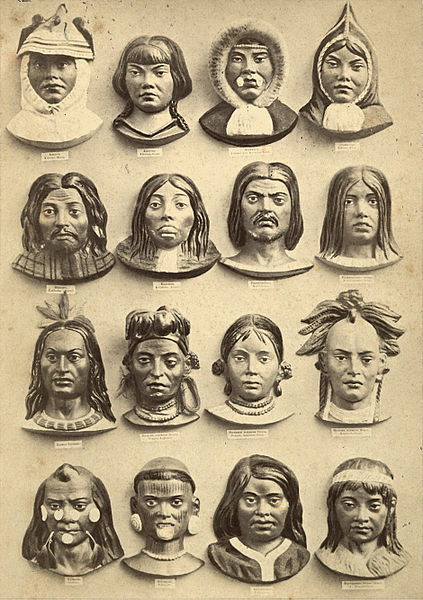Current Anthropology Special Issue: The Biological Anthropology of Living Human Populations
The latest issue of the Wenner-Gren Symposium Series has mailed together with the Current Anthropology April Issue. This is our fifth supplementary issue and the series has been a phenomenal success. The Biological Anthropology of Living Human Populations. Is edited by Susan Lindee and Ricardo Ventura Santos and as with other Symposium Supplements is now available through the CA website as an Open Access Issue. This issue, which is available completely open-access, is the result of the International Symposia held in Teresopolis, Brazil in 2010.
The Biological Anthropology of Living Human Populations: World Histories, National Styles, and International Networks
Current Anthropology Volume 53, Supplement 5, April 2012
Edited by Susan Lindee and Ricardo Ventura Santos

This Current Anthropology Supplementary Issue developed from a Wenner-Gren Symposium held in Teresópolis, Brazil, in 2010, and explored the past, present and future of biological anthropology. The papers in this issue aim to understand from a comparative international perspective the contexts of genesis and development of physical/ biological anthropology around the world. While biological anthropology today can encompass paleoanthropology, primatology, and skeletal biology, the symposium focused on the field’s engagement with living human populations. Bringing together scholars in history of science, science studies, and anthropology, the participants examined the discipline’s past in different contexts, but also reflected on its contemporary and future conditions. Papers in this issue explore national histories, collections, and scientific field practice with the goal of developing a broader understanding of the discipline’s history. The work tracks a global, uneven transition from a typological and essentialist physical anthropology, predominating until the first decades of the twentieth century, to a biological anthropology informed by post-synthesis evolutionism and the rise of molecular biology, a shift which was labeled “new physical anthropology”. The papers thus place biological anthropology in a broad historical context, and suggest how the histories documented can inform its future.
Table of Contents:
Leslie C. Aiello The Biological Anthropology of Living Human Populations: World Histories, National Styles, and International Networks: Wenner-Gren Symposium Supplement
Introduction
Susan Lindee and Ricardo Ventura Santos The Biological Anthropology of Living Human
Populations: World Histories, National Styles, and International Networks: An Introduction to Supplement 5
Anthropology and National Identity
Ricardo Ventura Santos Guardian Angel on a Nation’s Path: Contexts and Trajectories of Physical Anthropology in Brazil in the Late Nineteenth and Early Twentieth Centuries
Goncalo SantosThe Birth of Physical Anthropology in Late Imperial Portugal
Jon Røyne Kyllingstad Norwegian Physical Anthropology and the Idea of a Nordic Master Race
Morris Low Physical Anthropology in Japan: The Ainu and the Search for the Origins of the Japanese
The View from the Centers: Germany, France, United States
Veronika Lipphardt Isolates and Crosses in Human Population Genetics; or, A Contextualization of German Race Science
Emmanuelle Sibeud A Useless Colonial Science? Practicing Anthropology in the French Colonial Empire, circa 1880–1960
Warwick Anderson Racial Hybridity, Physical Anthropology, and Human Biology in the Colonial Laboratories of the United States
Vassiliki Betty Smocovitis Humanizing Evolution: Anthropology, the Evolutionary Synthesis, and the Prehistory of Biological Anthropology,1927–1962
Michael A. Little Human Population Biology in the Second Half of the Twentieth Century
Clark Spencer Larsen and Leslie Lea Williams Internationalizing Physical Anthropology: A View of the Study of Living Human Variation from the Pages of the American Journal of Physical Anthropology
A Global Form of Reason
Alan G. Morris Biological Anthropology at the Southern Tip of Africa: Carrying European Baggage in an African Context
Jonathan Marks The Origins of Anthropological Genetics
Perrin Selcer Beyond the Cephalic Index: Negotiating Politics to Produce UNESCO’s Scientific Statements on Race
Gı´sli Pa´lsson Decode Me! Anthropology and Personal Genomics
Collecting and Contested Ownership
Rachel J. Watkins Biohistorical Narratives of Racial Difference in the American Negro: Notes toward a Nuanced History of American Physical Anthropology
Ann M. Kakaliouras An Anthropology of Repatriation: Contemporary Physical Anthropological and Native American Ontologies of Practice
Trudy R. Turner Ethical Issues in Human Population Biology
Jenny Reardon and Kim TallBear “Your DNA Is Our History”: Genomics, Anthropology,
and the Construction of Whiteness as Property
New Powers: Biological Anthropology and the Persistence of History
Jean-Franc¸ois Ve´ran Old Bones, New Powers
Joanna Radin and Noel Cameron Studying Mandela’s Children: Human Biology in Post-
Apartheid South Africa: An Interview with Noel Cameron
Once again, all the articles are available on the Current Anthropology Website as open access.